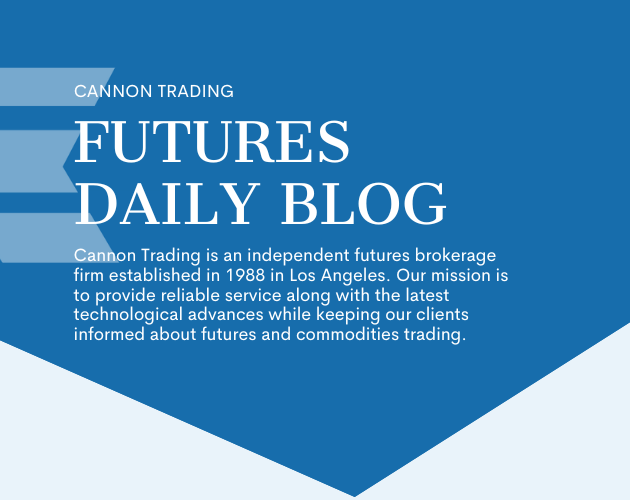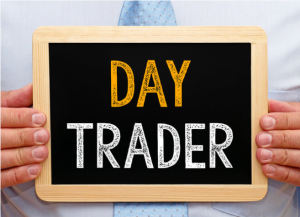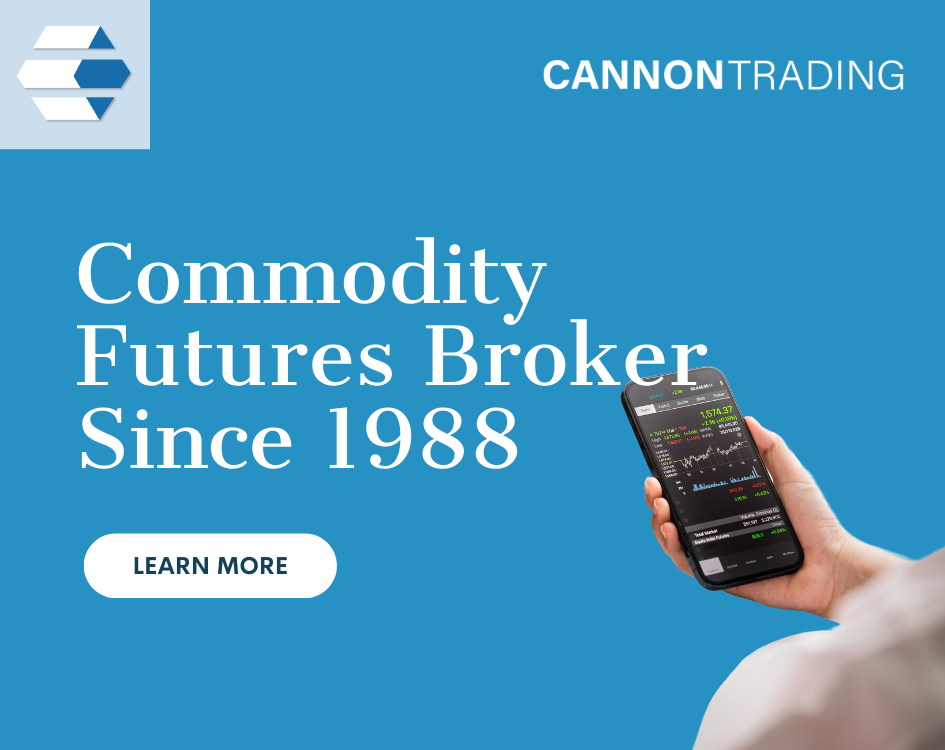
NFP – Non Farm Payrolls Tomorrow

|
|||||||||||||||||||||||||||||||||||||||||||||||||||||||||||
|
|||||||||||||||||||||||||||||||||||||||||||||||||||||||||||
|
This Blog provides futures market outlook for different commodities and futures trading markets, mostly stock index futures, as well as support and resistance levels for Crude Oil futures, Gold futures, Euro currency and others. At times the daily trading blog will include educational information about different aspects of commodity and futures trading.


|
|||||||||||||||||||||||||||||||||||||||||||||||||||||||||||
|
|||||||||||||||||||||||||||||||||||||||||||||||||||||||||||
|
Futures trading has evolved dramatically in recent years with the rise of intuitive, real-time platforms that offer retail and professional traders powerful tools. Among them, TradingView has surged in popularity thanks to its dynamic charting, robust analytical tools, and social community features. In this article, we explore why the TradingView Futures Trading Platform stands out as a premier online futures trading platform and why Cannon Trading Company is a top-tier partner for those looking to take advantage of everything TradingView has to offer.
What Is the TradingView Futures Trading Platform?
The TradingView Futures Trading Platform is a sophisticated yet user-friendly online futures trading platform that delivers live charting, in-depth analytics, and direct broker connectivity for active traders. Available through the TradingView download, TradingView app, and TradingView Desktop, it provides access to global futures markets with a seamless trading experience.
With the TradingView free version offering basic capabilities and premium upgrades unlocking institutional-level tools, TradingView caters to both novice and professional traders. The platform is particularly well-known for its TradingView chart interface, which allows real-time visualization of market data and technical indicators, including TradingView chart live feeds from major exchanges.
Key Features of TradingView for Futures Trading
When it comes to futures trading, specific platform features can make all the difference. Here are the most important features of the TradingView Futures Trading Platform that set it apart:
The combination of precision and flexibility in the TradingView chart tool enables futures traders to analyze trends and execute strategies efficiently.
While the platform is critical, your choice of broker is equally important in determining your success in the futures markets. That’s where Cannon Trading Company truly shines. Here’s why they make an ideal partner for those using TradingView for futures trading:
Established in 1988, Cannon Trading Company has over 35 years of futures industry experience. Their team includes brokers with backgrounds in institutional trading, risk management, and commodity trading. This depth of expertise helps clients make informed decisions and leverage the full potential of tools like the TradingView chart.
Cannon Trading is a registered member of the National Futures Association (NFA) and operates under the strict oversight of the Commodity Futures Trading Commission (CFTC). Their spotless compliance record demonstrates an unwavering commitment to transparency and ethical standards in all client dealings.
This makes them a trusted partner when integrating a robust online futures trading platform like TradingView.
Cannon Trading has earned numerous 5 out of 5-star ratings on TrustPilot. Clients consistently praise their excellent customer service, fast execution speeds, and educational support. These accolades reflect their client-first philosophy and ensure a smooth TradingView app experience when connected to Cannon.
While TradingView is a premier choice, Cannon provides access to a broad array of trading software at no cost, including:
Unlike many large brokerage firms, Cannon Trading provides personalized service. You can speak to experienced professionals who will walk you through connecting your account to TradingView Desktop or help you troubleshoot features like TradingView chart live.
They also provide insights into using TradingView indicators and settings tailored to your risk tolerance and market goals.
Getting started is simple. Follow these steps to launch your journey with one of the best online futures trading platforms:

This partnership brings together the best of both worlds:
Whether you’re trading energy futures, metals, interest rate products, or indices, the TradingView and Cannon combo gives you the insight, control, and speed needed to succeed.
The TradingView Futures Trading Platform has revolutionized how traders approach the markets, offering intuitive tools like TradingView chart, TradingView chart live, and multi-device access through the TradingView app, TradingView Desktop, and TradingView free editions.
But pairing this cutting-edge platform with a highly rated, industry-respected broker like Cannon Trading Company takes your trading to the next level. With their decades of futures expertise, free platform offerings, personalized broker assistance, and a sterling reputation among regulators and clients, Cannon is a trusted name in futures trading.
Whether you’re just beginning or are a seasoned trader seeking to optimize your setup, leveraging TradingView through Cannon Trading is one of the smartest moves you can make in today’s futures landscape.
For more information, click here.
Ready to start trading futures? Call us at 1(800)454-9572 (US) or (310)859-9572 (International), or email info@cannontrading.com to speak with one of our experienced, Series-3 licensed futures brokers and begin your futures trading journey with Cannon Trading Company today.
Disclaimer: Trading Futures, Options on Futures, and retail off-exchange foreign currency transactions involve substantial risk of loss and are not suitable for all investors. Past performance is not indicative of future results. Carefully consider if trading is suitable for you in light of your circumstances, knowledge, and financial resources. You may lose all or more of your initial investment. Opinions, market data, and recommendations are subject to change at any time.
Important: Trading commodity futures and options involves a substantial risk of loss. The recommendations contained in this article are opinions only and do not guarantee any profits. This article is for educational purposes. Past performances are not necessarily indicative of future results.
This article has been generated with the help of AI Technology and modified for accuracy and compliance.
Follow us on all socials: @cannontrading


|
||||||||||||||||||||||||||||||||||||||||||||||||||||||||||||||||||
|
||||||||||||||||||||||||||||||||||||||||||||||||||||||||||||||||||
|
In the rapidly evolving world of futures trading, having access to a cutting-edge futures trading platform is critical. One such platform making waves in the trading community is Bookmap—an innovative tool designed to bring transparency and precision to trading decisions. With its unique visual approach, Bookmap trading enables both novice and professional traders to see beyond the basic charts and deeply understand market behavior in real time.
As the demand for advanced platforms increases, so does the need for reliable brokers. That’s where Cannon Trading Company shines. As one of the most respected firms in the industry, Cannon Trading has been helping traders navigate the complex world of online futures trading platforms for decades.
This article explores the most important features of Bookmap for futures trading, details how to access Bookmap download and pricing, and explains why Cannon Trading Company is an outstanding partner for using this platform.
Bookmap is a high-performance futures trading platform that displays full-depth market data in an intuitive heatmap format. Unlike conventional charting tools, Bookmap trading enables you to see market liquidity and order flow with unprecedented clarity.
With Bookmap Web and Bookmap TradingView integration, users now have the flexibility to analyze markets on various devices and charting systems. This accessibility is enhanced by Bookmap free features that allow traders to try out the platform before committing financially.
The availability of granular market data is one of the core strengths of Bookmap. It visualizes market dynamics by showing historical order book activity and real-time transactions, enabling traders to spot opportunities before they appear on standard charts.
Understanding Bookmap pricing is key before diving in. There are several tiers based on your needs:
Each tier offers flexibility depending on whether you’re new to Bookmap trading or a seasoned professional. Importantly, Bookmap download is straightforward, and the platform supports both Windows and macOS.
With Bookmap Web, you can even access your trading dashboard from any browser, making it ideal for traders on the go.

When it comes to online futures trading platforms, broker selection is just as important as the platform itself. Cannon Trading Company stands out as an industry leader and is a perfect partner for anyone using Bookmap.
Combining the sophisticated features of Bookmap with the unmatched service of Cannon Trading Company creates a powerhouse for futures traders. Whether you’re leveraging the real-time heatmap for scalping or conducting detailed order flow analysis, Cannon Trading’s infrastructure and experience enhance your performance.
From Bookmap pricing transparency to expert help with Bookmap data feeds, Cannon ensures that your trading experience is as seamless and successful as possible.
The Bookmap Futures Trading Platform is revolutionizing how traders view and interact with the market. Its innovative visualization tools, integration with Bookmap TradingView, browser-based Bookmap Web, and robust Bookmap free version make it a go-to solution for serious traders. When combined with a top-tier brokerage like Cannon Trading Company, which offers industry experience, stellar reputation, regulatory compliance, and multiple futures trading platform options—including Bookmap—you have a winning formula for success.
Whether you’re exploring Bookmap download for the first time or looking to deepen your expertise in Bookmap trading, partnering with Cannon Trading will elevate your performance and confidence.
For more information, click here.
Ready to start trading futures? Call us at 1(800)454-9572 (US) or (310)859-9572 (International), or email info@cannontrading.com to speak with one of our experienced, Series-3 licensed futures brokers and begin your futures trading journey with Cannon Trading Company today.
Disclaimer: Trading Futures, Options on Futures, and retail off-exchange foreign currency transactions involve substantial risk of loss and are not suitable for all investors. Past performance is not indicative of future results. Carefully consider if trading is suitable for you in light of your circumstances, knowledge, and financial resources. You may lose all or more of your initial investment. Opinions, market data, and recommendations are subject to change at any time.
Important: Trading commodity futures and options involves a substantial risk of loss. The recommendations contained in this article are opinions only and do not guarantee any profits. This article is for educational purposes. Past performances are not necessarily indicative of future results.
This article has been generated with the help of AI Technology and modified for accuracy and compliance.
Follow us on all socials: @cannontrading


|
||||||||||||||||||||||||||||||||||||||||||||||||||||||||||||||||||
|
||||||||||||||||||||||||||||||||||||||||||||||||||||||||||||||||||
|
In the dynamic world of online futures trading platforms, few names stand out as boldly as MotiveWave. As technology continues to evolve, traders demand more robust, analytical, and user-friendly tools. The MotiveWave Futures Trading Platform meets these demands head-on, delivering a comprehensive suite of features that elevate the trading experience for both novice and professional futures traders alike.
This article provides a deep dive into the MotiveWave trading environment, highlights key features that make it a premier choice for futures trading, and explores why Cannon Trading Company is the ultimate partner for leveraging MotiveWave’s power.
What is MotiveWave?
MotiveWave is a professional-grade futures trading platform known for its advanced charting tools, algorithmic trading capabilities, and comprehensive market analysis features. Initially gaining traction among forex and equity traders, MotiveWave has carved a prominent space within the online futures trading platform sector due to its reliability and feature-rich design.
Whether you’re focused on short-term scalping or long-term market trend analysis, MotiveWave trading tools are tailored to adapt to your trading style. From MotiveWave mobile access to full desktop integration via MotiveWave download, the platform ensures seamless continuity for traders on the move. Additionally, it supports custom workspaces and scripting with Java-based extensions, further enhancing the functionality for sophisticated trading needs.
Most Important Features for Futures Trading on MotiveWave
Accessing your trading environment is easy with the MotiveWave login process. The interface is secured with two-factor authentication, ensuring your data and trading activities are protected. Users can customize their workspace upon login, allowing for a personalized experience that matches individual trading preferences.
The MotiveWave download is available directly from the official website. Installation is straightforward, with support available for Windows, macOS, and Linux operating systems. Regular updates ensure the platform remains secure and compatible with the latest system features.
A common query among new users is: Is MotiveWave free? While MotiveWave offers a free trial version, its full capabilities are unlocked through tiered pricing plans. This freemium model allows users to test the interface and decide on the best plan that suits their trading needs. Considering its robust toolset, the MotiveWave price offers excellent value compared to competitors.
There are also occasional promotions through partners like Cannon Trading, which may include extended trial periods or discounted subscriptions. This makes testing the MotiveWave trading experience even more accessible.

Choosing the right brokerage is as crucial as selecting the right futures trading platform. Cannon Trading Company excels in this regard. Here’s why:
MotiveWave Review Summary
The feedback from users paints a highly favorable MotiveWave review. Traders cite the platform’s depth of analysis, customizability, and professional-grade tools as reasons for their loyalty. Whether evaluating MotiveWave software for the first time or switching from another futures trading platform, users consistently highlight its seamless performance and insightful analytics.
Professional traders appreciate how MotiveWave trading aligns with institutional tools, while new users benefit from the clear documentation and visual guides. This inclusivity ensures a smoother learning curve, especially when paired with educational materials from Cannon Trading.
Furthermore, the synergy between MotiveWave and Cannon Trading amplifies the platform’s benefits. Combining advanced technology with decades of industry expertise creates a powerful trading environment that is both innovative and secure.
The MotiveWave Futures Trading Platform stands out in a crowded marketplace by offering unparalleled features, powerful analytical tools, and wide-ranging compatibility. The repeated queries of MotiveWave login, MotiveWave price, and MotiveWave download are justified by the platform’s capabilities and reliability. While MotiveWave mobile ensures traders are never disconnected, the question “Is MotiveWave free” is best answered by its generous trial options and value-packed pricing tiers.
When partnered with a top-tier brokerage like Cannon Trading Company, traders gain access to world-class tools, unbeatable service, and a trusted advisor in their futures trading journey. If you’re looking to elevate your futures trading game, MotiveWave combined with Cannon Trading is a combination worth serious consideration.
For more information, click here.
Ready to start trading futures? Call us at 1(800)454-9572 (US) or (310)859-9572 (International), or email info@cannontrading.com to speak with one of our experienced, Series-3 licensed futures brokers and begin your futures trading journey with Cannon Trading Company today.
Disclaimer: Trading Futures, Options on Futures, and retail off-exchange foreign currency transactions involve substantial risk of loss and are not suitable for all investors. Past performance is not indicative of future results. Carefully consider if trading is suitable for you in light of your circumstances, knowledge, and financial resources. You may lose all or more of your initial investment. Opinions, market data, and recommendations are subject to change at any time.
Important: Trading commodity futures and options involves a substantial risk of loss. The recommendations contained in this article are opinions only and do not guarantee any profits. This article is for educational purposes. Past performances are not necessarily indicative of future results.
This article has been generated with the help of AI Technology and modified for accuracy and compliance.
Follow us on all socials: @cannontrading


However, with volatility, you need to double check the status daily at:
We have a full day tomorrow! Reports, earnings and more global news in general.
Below you will see a quick video on how to set and utilize the bracket orders feature on the StoneX futures platform/ CQG desktop
|
|||||||||||||||||||||||||||||||||||||||||||||||||||||
|
|||||||||||||||||||||||||||||||||||||||||||||||||||||
|
Sierra Charts is widely regarded as one of the best futures trading platforms available today. Known for its depth, precision, and robust customization, Sierra Chart software is built for traders who value speed, stability, and flexibility in their charting and order execution. Whether you’re a new entrant exploring the world of trading futures or a seasoned institutional trader looking for a powerful toolset, Sierra Charts is designed to meet your needs with professional-grade features.
Cannon Trading Company stands out as the ideal brokerage partner for users of Sierra Charts, offering decades of experience, unmatched client support, and a suite of benefits that enhance every trader’s workflow.
Sierra Chart software is a high-performance, low-latency platform tailored for futures trading. It delivers a comprehensive solution with advanced technical analysis tools, real-time market data, and support for automated trading systems. Developed with an emphasis on efficiency and control, Sierra Charts is not only an institutional trading platform but also accessible to independent traders who demand performance.
Key Advantages:
With support for multiple data providers and brokers, Sierra Charts positions itself as a true institutional trading platform with appeal across the professional spectrum.

Cannon Trading Company is uniquely positioned to support Sierra Charts users for several compelling reasons:
✅ Decades of Experience
With over 35 years in the industry, Cannon Trading is one of the most trusted names in futures trading. Their deep expertise ensures clients receive insightful guidance for both platform use and market strategies.
✅ Stellar Reputation
The firm boasts a near-perfect TrustPilot rating, with many reviews applauding its fast support and knowledgeable brokers—ideal for trading futures confidently.
✅ Regulatory Excellence
Cannon Trading has maintained an exemplary record with regulators, giving traders peace of mind that they are working with a reliable and transparent partner.
✅ Diverse Platform Suite
In addition to Sierra Chart software, Cannon Trading provides access to a top-tier selection of platforms including CTS T4, Firetip, Rithmic, and more—cementing its reputation as a leader in best futures trading platform solutions.
Whether you’re a short-term scalper or a long-term trend trader, Sierra Charts delivers a versatile, robust, and high-performance experience that meets the demands of modern futures trading. When paired with the trusted, experienced team at Cannon Trading Company, you gain not only the tools but also the support to take your trading futures journey to the next level.
From institutional-grade features to tailored service, the synergy between Sierra Chart software and Cannon Trading is unmatched in the industry.
For more information, click here.
Ready to start trading futures? Call us at 1(800)454-9572 (US) or (310)859-9572 (International), or email info@cannontrading.com to speak with one of our experienced, Series-3 licensed futures brokers and begin your futures trading journey with Cannon Trading Company today.
Disclaimer: Trading Futures, Options on Futures, and retail off-exchange foreign currency transactions involve substantial risk of loss and are not suitable for all investors. Past performance is not indicative of future results. Carefully consider if trading is suitable for you in light of your circumstances, knowledge, and financial resources. You may lose all or more of your initial investment. Opinions, market data, and recommendations are subject to change at any time.
Important: Trading commodity futures and options involves a substantial risk of loss. The recommendations contained in this article are opinions only and do not guarantee any profits. This article is for educational purposes. Past performances are not necessarily indicative of future results.
This article has been generated with the help of AI Technology and modified for accuracy and compliance.
Follow us on all socials: @cannontrading
The Trader/Rithmic Futures Trading Platform has emerged as one of the leading solutions for active futures traders seeking high-performance market connectivity, advanced order execution, and precise risk management tools. Known for its ultra-low latency and institutional-grade technology, this platform is powered by Rithmic, a prominent name in the industry offering direct market access and high-fidelity data feeds. Whether you’re an individual retail trader or a professional prop firm operator, the Trader/Rithmic suite, especially RTrader Pro, equips you with powerful tools to navigate volatile futures markets effectively.
At the core of the Trader/Rithmic Futures Trading Platform is the Rithmic infrastructure—a robust trading engine that delivers real-time market data and trade execution with minimal latency. Rithmic provides API solutions, enabling seamless integration with various charting and order execution platforms. Traders using the Trader/Rithmic system can access a vast network of exchanges with direct market routing capabilities, ensuring that their orders are executed at top speed and accuracy.
The platform is often accessed through RTrader Pro, Rithmic‘s flagship graphical user interface. RTrader Pro is designed to deliver an advanced trading experience with real-time P&L tracking, automated trading support, and customizable market views. Together, Rithmic, Trader/Rithmic, and RTrader Pro form a comprehensive ecosystem that supports a wide array of futures trading strategies.

Below are the most important features that make the Trader/Rithmic Futures Trading Platform a top-tier choice for futures traders:
The Trader/Rithmic Futures Trading Platform caters to a wide spectrum of trading profiles:
RTrader Pro provides an intuitive interface that bridges these user types with the depth of the Rithmic infrastructure.
The Trader/Rithmic Futures Trading Platform is a high-performance solution tailored for futures market participants who demand speed, precision, and flexibility. Powered by Rithmic’s advanced infrastructure and complemented by RTrader Pro’s user-centric design, this platform caters to the full spectrum of trading needs—from day trading to algorithmic execution.
Whether you’re a retail trader seeking an edge or a professional managing multiple accounts, the Trader/Rithmic platform delivers the tools and technology required to thrive in today’s fast-paced futures markets.
For more information, click here.
Ready to start trading futures? Call us at 1(800)454-9572 – Int’l (310)859-9572 (International), or email info@cannontrading.com to speak with one of our experienced, Series-3 licensed futures brokers and begin your futures trading journey with Cannon Trading Company today.
Disclaimer: Trading Futures, Options on Futures, and retail off-exchange foreign currency transactions involve substantial risk of loss and are not suitable for all investors. Past performance is not indicative of future results. Carefully consider if trading is suitable for you in light of your circumstances, knowledge, and financial resources. You may lose all or more of your initial investment. Opinions, market data, and recommendations are subject to change at any time.
Important: Trading commodity futures and options involves a substantial risk of loss. The recommendations contained in this article are opinions only and do not guarantee any profits. This article is for educational purposes. Past performances are not necessarily indicative of future results.
This article has been generated with the help of AI Technology and modified for accuracy and compliance.
Follow us on all socials: @cannontrading

|
|
|
|
|
|
|
|
The PriceCount study is a tool that can help to project the distance of a move in price. The counts are not intended to be an ‘exact’ science but rather offer a target area for the four objectives which are based off the first leg of a move with each subsequent count having a smaller percentage of being achieved.
It is normal for the chart to react by correcting or consolidating at an objective and then either resuming its move or reversing trend. Best utilized in conjunction with other technical tools, PriceCounts offer one more way to analyze charts and help to manage your positions and risk. Learn more at www.qtchartoftheday.com
Trading in futures, options, securities, derivatives or OTC products entails significant risks which must be understood prior to trading and may not be appropriate for all investors. Past performance of actual trades or strategies is not necessarily indicative of future results.
|
|||||||||||||||||||||||||||||||||||||||||||||||||||||||||||||||||||||
|
|||||||||||||||||||||||||||||||||||||||||||||||||||||||||||||||||||||
|